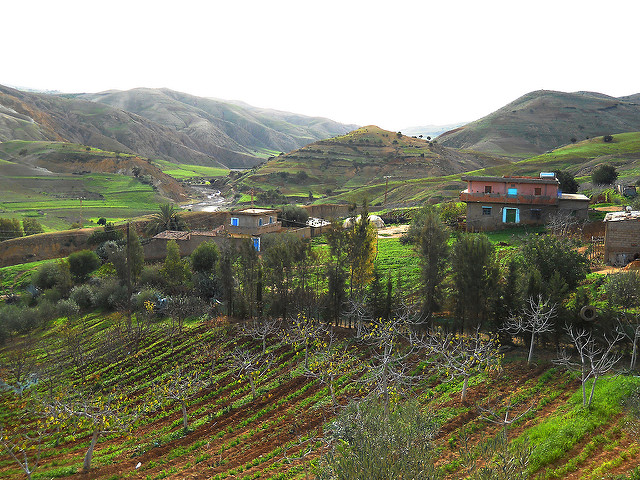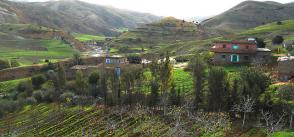
Rural Algerian women take charge of their own lives, empower others
In remote and rural Algerian communities, poverty among women is high. For vulnerable groups, such as widows, it’s even higher. A project funded by UN Women Fund for Gender Equality has revealed the unique challenges faced by women in these areas and given them the means to earn incomes, take charge of their own lives and inspire other women in their communities.
When Fatiha Routane’s husband passed away, her eldest child was six years old. The 39-year-old widow living in Bordj Bou Arreridj Province, a remote rural area in the north-east part of Algeria, had to defy all stereotypes to find income and raise four children on her own.
In this part of the world, widowed women who work outside their homes are frowned upon. Even as Routane tried to find work, her options were limited to subsistence farming and pottery, which generated barely enough income to cover the basic needs of the family.
Her story is one of many, as revealed by the first socio-economic study of women across 24 municipalities of the the Bordj Bou Arreridj region in 2015. The study was conducted by the organization El Ghaith, with the support of UN Women’s Fund for Gender Equality, and showed high levels of poverty among women, especially widows, divorcees and those who headed households, and lack of access to education, health and employment opportunities.
“These women are among the most marginalized in the country, and often difficult to reach through government programmes. When we talk about ‘leaving no one behind’, these are the types of communities that we need to target.”
(Rana El-Houjeiri, UN Women Fund for Gender Equality Portfolio Manager for the Arab States)
Since the study was published and disseminated, more authorities are aware of the challenges faced by women in these communities and are collaborating with El Ghaith and other local organizations to provide assistance through “proximity centres”—mobile outreach units set up by the Government.
“I first heard about El Ghaith’s initiative through the National Solidarity Ministry’s proximity centre in El M’Hir and I immediately decided to take part in [the project]. They made us aware of our rights”, recalls Routane.
She was among more than 450 women from the five poorest municipalities to participate in the project and learned about her socio-economic rights, existing public services and how to access them, in addition to learning new income-generating skills, such as beekeeping, breeding and keeping sheep, goat and rabbits.
Read the full article via UN Women.
[Photo by Pabel Rock | Flickr]







